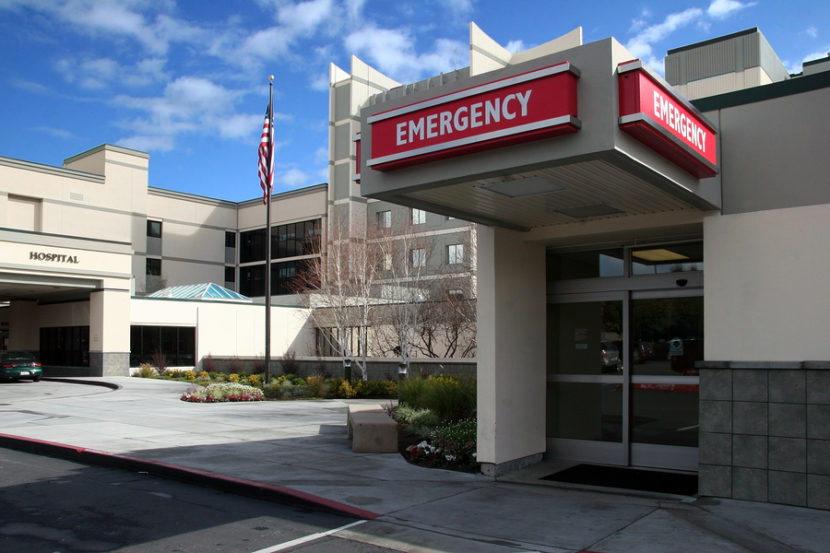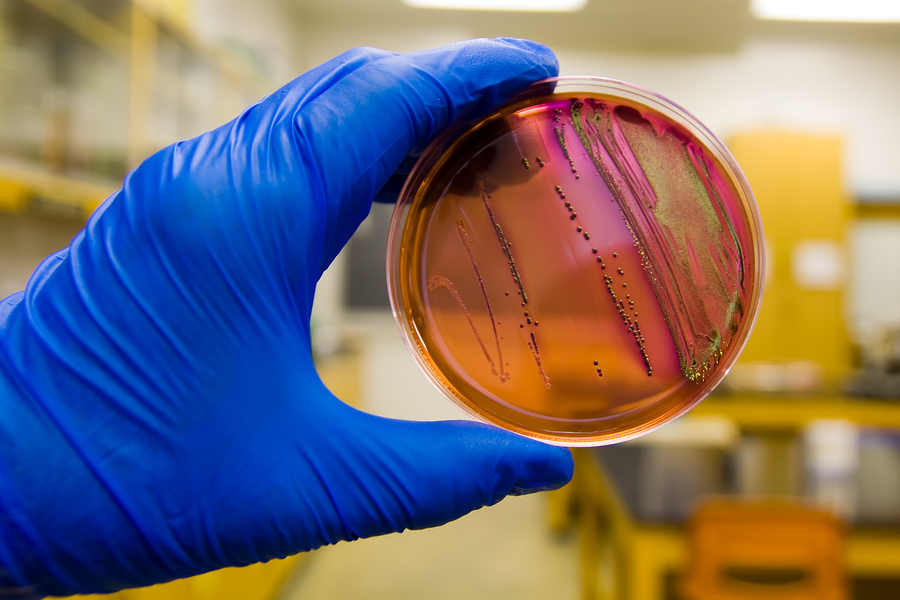The Day after Tomorrow: the Long-Term Symptoms of Foodborne Illness
By: Suzanne Osborne, Ph.D
If you have ever had food poisoning you will appreciate the relief that follows the end of your sickness; the symptoms are gone, and you can get on with your life. But not all of us are so lucky. Occasionally, food poisoning can cause certain diseases to manifest years later with a vengeance. Sometimes, contaminated food can have life-long health consequences.
Often, the long time lapse between the initial infection and chronic illness makes it difficult to link the two events. This creates a challenge in quantifying the true health and economic burden of foodborne disease. Large scale studies that track patients for years have begun to shed light on the long- term consequences of food poisoning.
Following an acute bacterial infection, most commonly with Salmonella or Campylobacter, a person is twice as likely to develop inflammatory bowel disease (IBD). IBD includes a group of diseases that inflame the intestines. It can lead to chronic episodes of diarrhea, abdominal pain, fever, weight loss, abdominal abscesses and perforations. Severe cases can require surgical removal of portions of the intestinal tract. Environmental and genetic factors can impact the risk of developing IBD following food poisoning.
Illness following contact with food contaminated with Salmonella, Escherichia coli, Shigella, Yersinia or Campylobacter can also increase the risk of developing reactive arthritis by up to 25 percent. Reactive arthritis is a condition where inflammation causes pain and swelling in the joints. It typically occurs one to three weeks after the initial infection. Evidence has suggested that the more severe the initial infection, the more likely it is to cause arthritic symptoms. Arthritis can become chronic, causing permanent joint damage in up to 20 percent of cases.
Infection with E. coli O157:H7 can lead to the development of hemolytic uremic syndrome; a dangerous complication involving kidney disease, kidney failure and even death. Although children are most commonly affected by this complication, adults who have overcome an E. coli O157:H7 infection carry increased risk for developing kidney problems later in life.
Foodborne bacterial infections can also cause mental and muscular disorders. The most famous example is Guillain-Barré syndrome. Triggered by Campylobacter infection, Guillain-Barré syndrome can cause sudden paralysis, mild sensory disturbances or death. Infection with Listeria during pregnancy can also lead to neurological complications in the developing fetus, including mental retardation, seizures, paralysis, blindness or deafness.
It is likely that other chronic diseases may be triggered by infection as well, but are not yet recognized due to the difficulty in linking the two events over long periods of time.
The Centers for Disease Control estimates that 48 billion Americans become sick and 3,000 die from foodborne diseases each year. These illnesses come with a staggering $152 billion price tag. The global burden of foodborne disease remains unknown but is currently under investigation by the World Health Organization. However, our inability to accurately assess the long term consequences of foodborne illness means that these numbers are likely underestimates. This places an even greater onus on manufacturers and retailers to implement Global Food Safety Initiative food safety systems both in their establishments and during transport. Educating consumers so they can engage in safe food handling and preparation methods at home is also of vital importance.
About the Author
Dr. Suzanne Osborne’s expertise is in the field of host-pathogen interactions and foodborne bacteria. She obtained her doctoral degree at McMaster University and worked as a Research Fellow at the Hospital for Sick Children (Toronto). She has received numerous awards for her research. Suzanne currently does freelance science writing and grant writing.
To have more articles like this emailed to your inbox, become a GFSR Member today espanolfarm.com!

-
 FeaturedRisk management
The Cost of a Breach: What a Cyberattack Could Mean for Food Safety Recalls
FeaturedRisk management
The Cost of a Breach: What a Cyberattack Could Mean for Food Safety Recalls
-
 FeaturedRisk management
Securing the Food Chain: How ISO/IEC 27001 Strengthens Cybersecurity
FeaturedRisk management
Securing the Food Chain: How ISO/IEC 27001 Strengthens Cybersecurity
-
 FeaturedRisk management
Revolutionizing Food Safety Training: Breaking Out of the “Check-the-Box” Mentality
FeaturedRisk management
Revolutionizing Food Safety Training: Breaking Out of the “Check-the-Box” Mentality
-
 GFSI Standards
GFSI 2025: Building Trust, Tech-Forward Solutions, and Global Unity in Food Safety
GFSI Standards
GFSI 2025: Building Trust, Tech-Forward Solutions, and Global Unity in Food Safety
-
 FeaturedFood Safety
Integrated Pest Management: Strategies to Protect Your Brand’s Reputation
FeaturedFood Safety
Integrated Pest Management: Strategies to Protect Your Brand’s Reputation
-
 FeaturedFood Safety Culture & Training
No Open Door Policy: Challenges That Impact Pest Control in Food Processing Plants
FeaturedFood Safety Culture & Training
No Open Door Policy: Challenges That Impact Pest Control in Food Processing Plants



